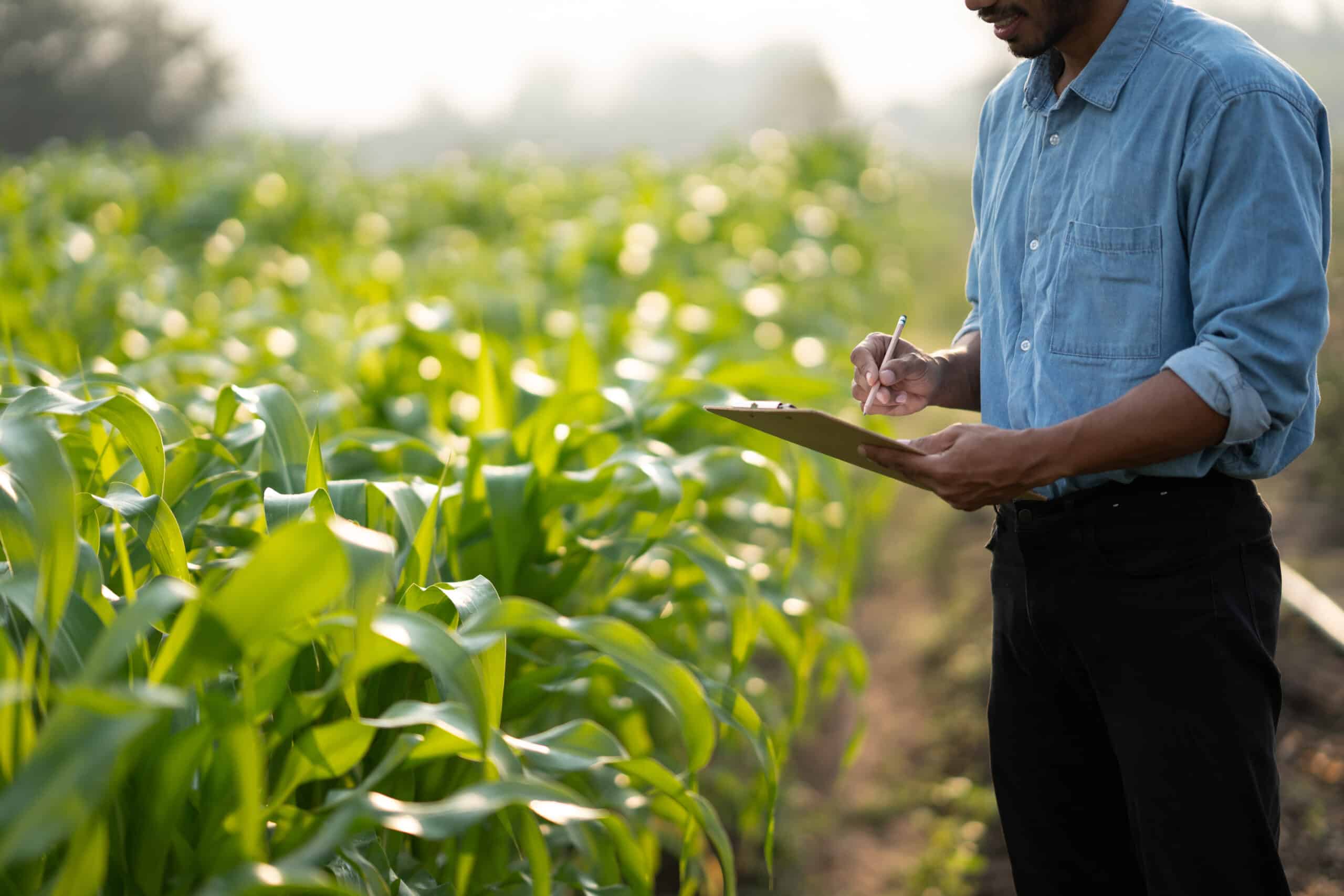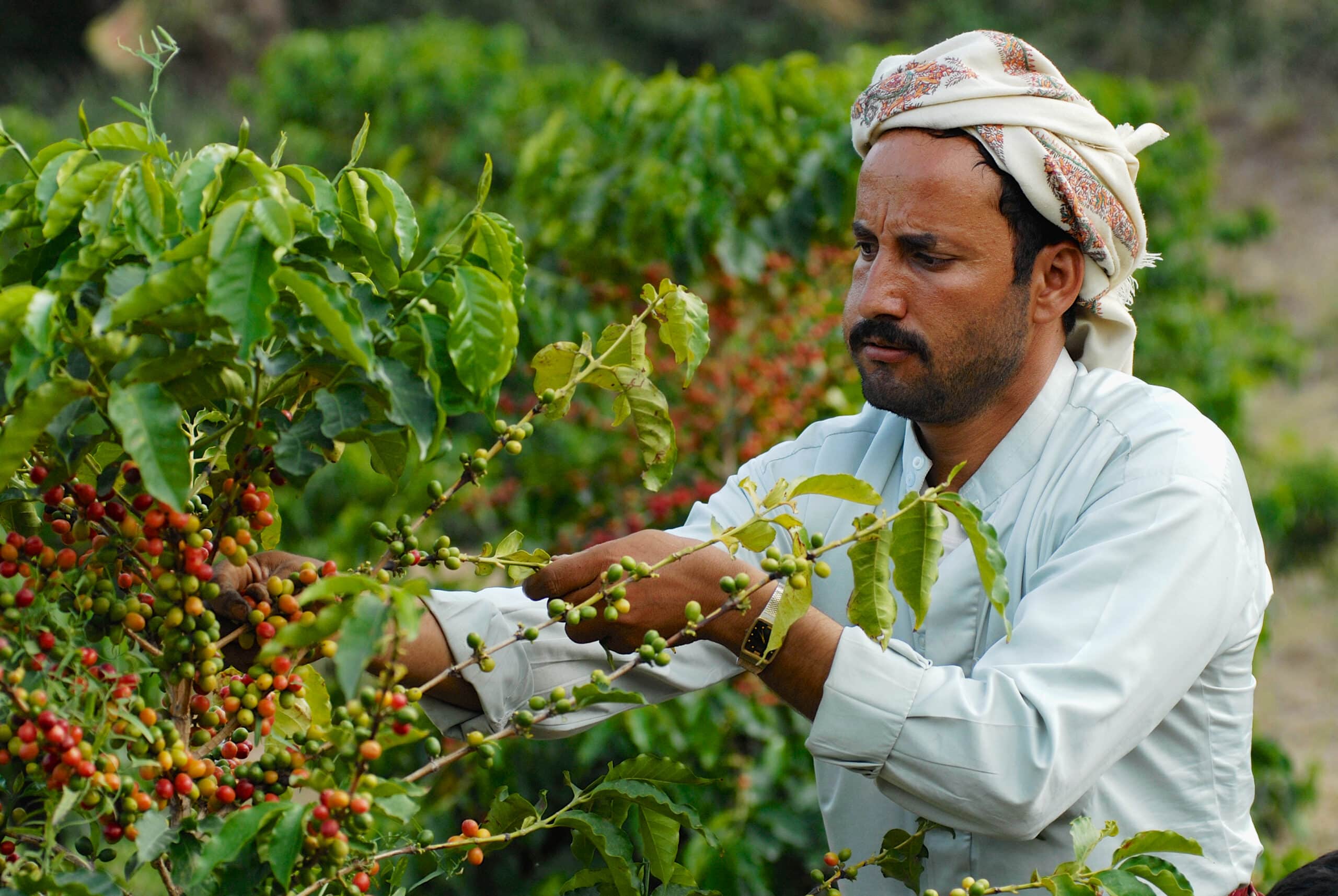Despite the immense global value of the coffee industry, market linkage remains a significant challenge for many of the smallholder farmers who form its backbone. This is particularly true in East Africa, where barriers to market access and persistent poverty hinder their ability to benefit fully from the industry’s growth. The following article will explore the issues faced by coffee farmers in East Africa attempting to access wider markets.
Smallholder coffee farmers in Uganda
Coffee is one of the world’s largest food industries, with a market size of over $130 billion, as of 2024. It is estimated to grow to $165 billion by 2029 (with a CAGR of 4.62%). Coffee is grown exclusively in equatorial countries and exported to northern markets. The majority of the world’s coffee is produced by smallholder farmers, nearly half of whom are based in Ethiopia (2.2 million), Uganda (1.8 million) and Indonesia (1.3 million). Of the former two countries, roughly 20% of smallholders live in extreme poverty, living on less than $1.90 a day.
Uganda’s coffee industry is predominantly driven by smallholder farmers, who account for 99% of the country’s coffee production. With approximately 1.8 million smallholder farmers producing 6.85 million 60kg bags annually, coffee is foundational for both the economy and rural livelihoods.
The average coffee plot in Uganda is about 0.3 hectares per farm, with productivity rarely exceeding 800kg/hectare. Given a 9-month growing cycle, the typical smallholder produces no more than 4 bags of coffee per year. This limited volume of production, combined with highly variable farmgate prices, ranging from $1.77/kg to $3.70/kg, means many farmers lack sufficient income to achieve financial stability.
These financial challenges are further compounded by market linkage hurdles. Limited access to market information, inadequate transportation infrastructure, and multiple intermediaries in the value chain often result in lower prices for smallholders. Additionally, the lack of direct connections to international buyers or roasters diminishes their bargaining power.
In Uganda, efforts to improve this situation are underway with numerous initiatives by the Uganda Coffee Development Authority (UCDA) aiming to enhance quality standards and promote direct trade relationships. Ugandan packaged coffee typically sells at $4.5/kg in the global market, but smallholder farmers receive only a fraction of this price. This significant disparity is often due to the presence of multiple intermediaries who absorb much of the profit margin. To combat this, the UCDA is working to streamline the supply chain by reducing the number of middlemen and enhancing farmers’ access to international markets. By facilitating direct connections with buyers, these initiatives aim to ensure that farmers receive a fairer share of the global market price, ultimately boosting farm incomes and promoting financial stability.
Approaches to enhance market linkage
The coffee industry’s value chains are particularly inequitable, with retailers and roasters enjoying the greatest profit margins, at 15% and 7%, respectively. Inevitably, this profit comes at the expense of producers and exporters. Value chains for smallholders can be very long, and without sufficient bargaining power farmers are often vulnerable to exploitation. To help combat this, there is a growing emphasis from coffee producing nations to leverage technology, enhance value addition at the source, and invest in training and capacity-building initiatives for farmers.
Technology access
Mobile technologies have been mooted as feasible, if limited, solutions in parts of East Africa. In Uganda the phone-owning population has increased steadily to 43%, with the robusta coffee-growing regions of Buganda and Ankole enjoying 59% and 48% respectively. There are over 12 million smartphones in Uganda, which almost perfectly correlates to an internet penetration rate of 24%. The widespread adoption of smartphones and the availability of internet access has enabled the UCDA to create a centralised app for smallholder farmers.
The app provides coffee farmers and Uganda’s development authority with access to information that was previously inaccessible. For the former, it facilitates market linkage with buyers and roasters at a national level, enables smallholders to obtain a more competitive market rate for their products, and allows them to potentially trim their value chain. For the latter, it provides up-to-date data and statistics that can be used to develop actionable initiatives aimed at combating rural poverty.
Although this solution is promising, it does require a degree of digital literacy and depends on the farmers’ ability to access mobile phones and the internet. Additionally, unreliable network coverage in rural areas can impede the app’s functionality. These challenges can limit the app’s reach and effectiveness, potentially excluding a significant portion of farmers who could otherwise benefit from it.
Value addition and cooperatives
Value addition can provide smallholder farmers in East Africa with a means to enhance their incomes. By investing in processing techniques and equipment, farmers can improve the quality and value of their coffee, making it more attractive to premium markets. This enables smallholders to capture a larger share of the value chain and increase their profit margins. For instance, coffee that undergoes wet processing (washing) can sell for about 30% more than its dry-processed counterparts.
However, value addition requires access to capital, technical expertise, and infrastructure, which can be challenging. Collaborative efforts like forming cooperatives and producer organisations can help smallholders pool resources and share knowledge. This has already had a tremendous impact in Colombia where members of Colombian producer organisations enjoy better access to machinery and low-cost agri inputs that can greatly enhance their yield. These groups can also facilitate greater market access, quality control, and bargaining power.
Similar cooperatives in Uganda have the potential to provide coffee farmers with the same type of assets and assistance that would enable them to generate a comparable product and gain a greater share of the value chain. However, without assistance from government agencies, NGOs, and private sector partners, establishing such cooperatives may be overly difficult.
Training and capacity building
As smallholder farming in East Africa is often highly dispersed and unorganised, with farmers working on small, independent plots of land without any centralised coordination, quality and standards can vary greatly. This inevitably leads to market exclusion and losses for poorer or less educated farmers.
Training initiatives, such as asset-based community development programs, help smallholders and rural communities to develop the skills required to meet global export standards. In addition to this, specific training and incubation programs can enhance the capabilities of farmers and underserved groups (such as young people and women). Training programs targeting these groups could have a tremendous impact on regional output. In Uganda for example, yields could double from 800kg/hectare to 1600kg/hectare if best practice techniques are implemented.
Potential for the future
Market linkage for smallholder coffee farmers in East Africa remains a critical challenge that requires innovative solutions and sustained support. While the advent of mobile technologies, cooperatives, and training programs offer promising avenues for improvement, significant obstacles persist.
Moving forward, a holistic approach that combines technological innovation, collective action, and capacity building can help address value chain disparities and enhance the economic resilience of smallholder farmers. Stakeholders across the coffee value chain, including government bodies, NGOs, and private sector actors, must collaborate to create more equitable policies and processes that foster sustainable, and inclusive, economic growth.
Addressing these challenges has the potential to improve the livelihoods of millions of smallholder coffee farmers in East Africa and strengthen the resilience and sustainability of the global coffee industry as a whole.
At Farrelly Mitchell, we are committed to supporting market linkages. We provide actionable advice on the most effective strategies and tools for adding value and are highly experienced in capacity building, program development and community empowerment.
To learn more about how we can transform and strengthen underdeveloped rural communities get in touch with our team today.














